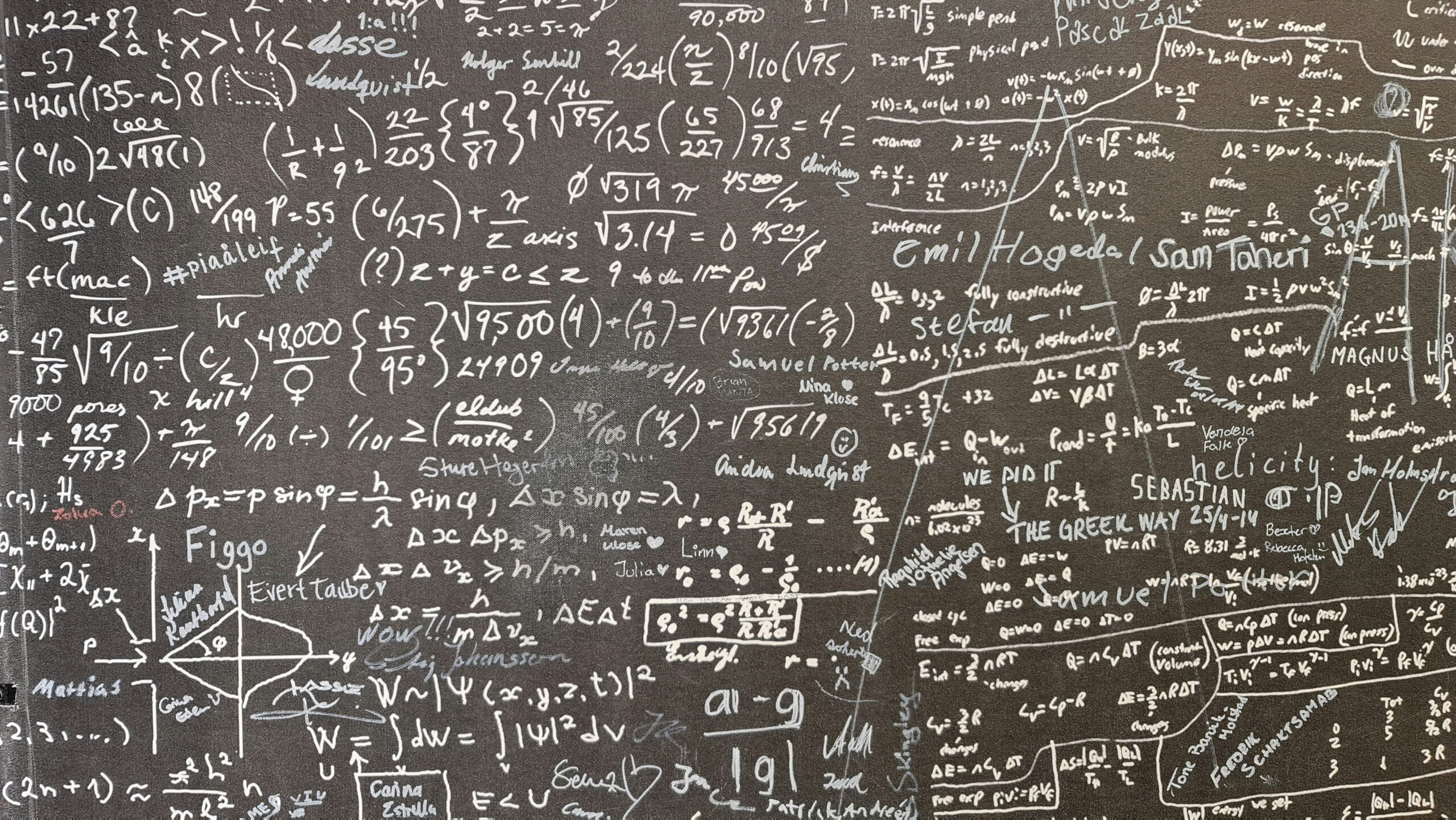Becoming an Expert in Mathematics: Insights, Founders, and Historic Inventions

Introduction to Mastering Mathematics
Mathematics is a fundamental discipline that permeates various fields and aspects of everyday life. From calculating expenses and budgeting to understanding scientific principles and technological advancements, math plays a crucial role. Its importance cannot be overstated, as it forms the backbone of fields such as engineering, physics, economics, and computer science.
To excel in mathematics, one must develop a set of foundational skills, including critical thinking, problem-solving, and analytical abilities. These skills enable individuals to approach complex problems methodically and find logical solutions. Critical thinking involves evaluating information and arguments, problem-solving focuses on identifying and resolving issues, while analytical abilities allow for the dissection and understanding of intricate concepts.
Mathematical proficiency can be achieved at various levels, ranging from basic competency to advanced mastery. Basic competency involves understanding fundamental mathematical operations and principles, which are essential for everyday tasks and entry-level positions. Intermediate proficiency encompasses a deeper grasp of mathematical concepts and the ability to apply them in more complex scenarios, often required in specialized fields. Advanced mastery represents the highest level of expertise, enabling individuals to contribute significantly to scientific research, technological innovation, and theoretical advancements.
Becoming an expert in mathematics offers numerous benefits. Enhanced career opportunities are one of the most significant advantages, as many high-demand professions require strong mathematical skills. Additionally, mathematical expertise allows individuals to contribute to scientific and technological progress, driving innovation and solving pressing global challenges. Furthermore, a deep understanding of mathematics fosters a sense of accomplishment and confidence, empowering individuals to tackle problems across various domains.
In essence, mastering mathematics is not only about acquiring knowledge but also about developing a mindset that values logical reasoning and precision. It is a journey that opens doors to numerous opportunities and enables individuals to make meaningful contributions to society.
Historical Pioneers of Mathematics
The annals of mathematical history are adorned with the illustrious contributions of several pioneering figures whose work has laid the foundational stones of modern mathematics. Among these luminaries, Euclid, often hailed as the ‘Father of Geometry,’ stands out prominently. His magnum opus, “Elements,” is a compilation of 13 books that systematically present the principles of geometry. Euclid’s systematic approach and logical rigor have not only influenced the field of mathematics but have also shaped the development of logical reasoning in other disciplines.
Another towering figure in the realm of mathematics is Isaac Newton. Renowned for his groundbreaking work in calculus and physics, Newton’s contributions extend far beyond the famous laws of motion and gravitation. His development of calculus, independently paralleled by Leibniz, provided the essential tools for understanding change and motion, thus revolutionizing the field. The principles outlined in his seminal work, “Mathematical Principles of Natural Philosophy,” continue to underpin much of modern physics and engineering.
Carl Friedrich Gauss, often referred to as the ‘Prince of Mathematicians,’ made monumental strides in number theory, a branch of mathematics concerned with the properties and relationships of numbers. Gauss’s contributions are vast and varied, including the formulation of the Gaussian distribution in statistics, advancements in algebra, and the establishment of the fundamental theorem of arithmetic. His work, “Disquisitiones Arithmeticae,” is a cornerstone text in number theory and continues to influence contemporary research and application in mathematics.
The enduring legacies of Euclid, Newton, and Gauss are a testament to their profound impact on the field of mathematics. Their groundbreaking discoveries have not only advanced mathematical theory but have also paved the way for future innovations. Contemporary mathematicians continue to draw inspiration from their work, building upon their theories to explore new frontiers. The contributions of these historical pioneers underscore the timeless nature of mathematics and its integral role in the advancement of human knowledge.
Historic Mathematical Inventions and Discoveries
Throughout history, several mathematical inventions and discoveries have fundamentally transformed the way we understand and interact with the world. One of the most pivotal inventions is the concept of the number zero. First developed by ancient Indian mathematicians around the 5th century, zero not only filled the void in numerical systems but also facilitated the development of algebra and calculus. Its introduction enabled more complex calculations and laid the groundwork for the binary systems essential in modern computing.
The invention of calculus by Isaac Newton and Gottfried Wilhelm Leibniz in the late 17th century marked another monumental leap. Calculus addressed the need to measure change and motion, problems that classical geometry could not solve. This new branch of mathematics provided tools for understanding the physical world, from planetary movements to engineering structures. Its applications are vast, impacting fields such as physics, engineering, economics, and medicine.
Equally important is the Pythagorean theorem, formulated by the ancient Greek mathematician Pythagoras. This theorem, establishing the relationship between the sides of a right triangle, was a significant advancement in geometry. The Pythagorean theorem has practical applications in various fields, including architecture, navigation, and even computer science, where it plays a role in algorithms for spatial calculations.
Algorithms themselves represent another cornerstone of mathematical progress. The term “algorithm” originates from the Persian mathematician Al-Khwarizmi, whose works in the 9th century laid the foundation for algebra. Algorithms are step-by-step procedures for calculations, and their development has revolutionized computer science, enabling everything from simple arithmetic operations to complex data processing and artificial intelligence.
These historic mathematical inventions and discoveries have not only advanced theoretical mathematics but have also been applied to solve real-world problems. From engineering feats to economic models, the influence of these mathematical breakthroughs is evident across various scientific fields. Each invention addressed specific challenges of its time and provided tools that continue to drive innovation and understanding in our modern world.
Strategies for Becoming an Expert in Mathematics
Becoming an expert in mathematics requires a blend of dedication, practical strategies, and continual engagement with the subject. One of the most crucial elements is developing effective study habits. Regular practice is paramount; mathematics is a discipline where concepts build upon each other, and consistent practice helps in reinforcing these concepts. Establishing a routine that includes daily problem-solving and review sessions can significantly enhance retention and understanding.
Seeking help from mentors is another pivotal strategy. Mentors can provide guidance, clarify doubts, and offer insights that are not easily accessible through textbooks. Engaging with mathematical communities, both online and offline, also plays a significant role. These communities provide a platform for discussion, collaboration, and exposure to diverse problem-solving techniques, thereby broadening one’s mathematical perspective.
A solid foundational knowledge is indispensable. Before diving into complex topics, ensure that the basics are well understood. This solid foundation will make advanced concepts more approachable and less intimidating. Additionally, leveraging technology and online resources can be highly beneficial. There are numerous educational platforms and tools available that offer interactive lessons, tutorials, and practice problems, making learning more engaging and effective.
Participation in mathematical competitions and research projects can provide practical experience and a deeper understanding of mathematical concepts. Competitions stimulate critical thinking and problem-solving skills under pressure, while research projects offer an opportunity to explore mathematical theories in depth and contribute to the field.
Staying motivated is often a challenge, but setting achievable goals and celebrating small victories can help maintain enthusiasm. It’s also essential to view challenges as opportunities for growth rather than obstacles. Learning from mistakes and persisting despite difficulties are critical traits of successful mathematicians.
Real-life examples of successful mathematicians can be inspirational. For instance, Terence Tao’s journey, which began at a young age and has made significant contributions to the field, highlights the importance of passion and continuous learning. Similarly, Maryam Mirzakhani’s perseverance and innovative approaches serve as a reminder that continuous improvement is possible, even in the face of challenges.
By adopting these strategies—regular practice, seeking mentorship, engaging with communities, building a solid foundation, leveraging technology, participating in competitions and research, and maintaining motivation—individuals aspiring to become experts in mathematics can navigate their learning journey more effectively and achieve their goals.
Unveiling the Truth: Everest Business Funding Ripoff Report and Reviews
Guide to GP Academy Login and Blue Stream Academy Access



